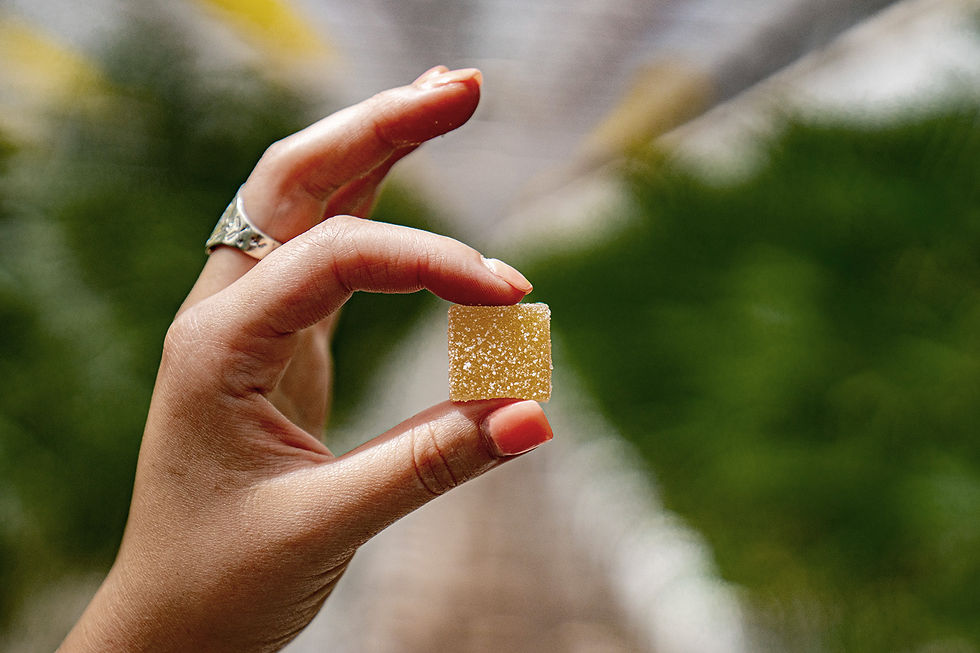CBD Oil vs. Hemp Seed Oil
- Jan 6, 2020
- 4 min read

Ever wonder why there’s such a big difference in prices between CBD brands and products? If they’re all selling CBD, why should you pay an extra $40 for one brand versus another? Well as it turns out, they’re not all selling the same thing, even though many brands want you to think they are. There’s still a lot of confusion about what ingredients come from what part of the cannabis plant, and in today’s ‘Green Rush’, bad actors will use that confusion to their advantage. Remember, hemp and marijuana are both cannabis with the main difference being that hemp is classified as cannabis with less than 0.3% THC (the main psychoactive compound in cannabis) and marijuana as greater than 0.3% THC. Here’s what you need to know to keep informed and make sure that the products you buy are safe, healthy, and effective.
CBD Oil
First off, let’s take a second to get better acquainted with the ingredient that we’re looking for. CBD, or cannabidiol, is one of over a hundred active compounds or cannabinoids found exclusively in the cannabis plant. CBD can act as an anti-inflammatory agent, similar to NSAID medicines such as Advil, Mortin, or Aleve. Inflammation is a leading cause of pain in conditions like arthritis, joint pain, headaches, or muscle soreness and reducing inflammation leads to pain relief across a wide variety of causes. When it comes to different products, you’ll find cannabidiol labeled as CBD, hemp CBD, and phytocannabinoid-rich hemp oil. All of these different names definitely lead to confusion. Beware, not all CBD is created equal.
Hemp Seed Oil
The other major product found on the market these days is hemp seed oil. Hemp seed oil is a relative of other carrier oils like sunflower or vegetable oil. Hemp seed oil, sometimes referred to as cannabis sativa seed oil, is high in antioxidants, omega-3 and -6 fatty acids, but contains no CBD and the anti-inflammatory effects that come with it. Hemp seed oil also contains no THC. While hemp seed oil has great nutritional value and is even used as a skin moisturizer, it does not have the same health benefits that make CBD effective for people experiencing pain and anxiety.
So Why the Confusion?
Despite these major differences, CBD and hemp seed oil are always confused with each other. While accidentally taking one instead of the other won’t harm you at all, it can be disappointing and costly if you’re trying to reap the benefits of CBD but instead take hemp seed oil. One big point of confusion is that both are wellness products marketed as health supplements. Another reason has to do with marketing regulations. Most online platforms actually don’t allow brands to even say CBD in their ads and so they turn to other names and labeling, like hemp oil, to avoid having their ads taken down. But the sketchy reality is that many hemp seed oil brands purposely try to market their products to sound like CBD to raise their prices, or pretend that they’re offering the same product for a lower price. So you have to beware of online marketplaces. Since CBD companies cannot say CBD in their ads, they typically have to use the term “hemp oil” when describing their products, but hemp seed oil companies may also use the same term (hemp oil) to make it seem like they are selling CBD at a much lower cost. One of your best bets is to take a look at the reviews that people leave about the products and their experience with them. Really transparent companies supply their third-party lab test results with their products so you can check what compounds are contained within the product and which have been removed. For example, many people want 0% THC in their CBD products and no pesticides or any other harmful contaminants.
Why the Difference in Price?
If both CBD and hemp seed oil are health supplement extracts from the hemp plant, why is there such a big difference in their costs? Although some of it comes down to the additional health benefits associated with CBD, most of that cost has to do with how each is made. Hemp seed oil extraction is a pretty simple process, and just like vegetable oil or sunflower oil, it’s cheap to extract. On the other hand, extracting CBD and other cannabinoid compounds requires a very precise process designed to target specific compounds while leaving behind all the unnecessary stuff. Not all CBD is created equal and there are several different types of cheap extraction processes that use petroleum or ethanol. One of the safest and highest quality methods is through CO2 extraction, which tends to cost a little more. So, generally, that extra cost of premium CBD products is directly related to the purity and safety of the extraction process as well as the quality of the hemp.
Why Asha?
Here at Asha, we are fully transparent in what you get. There’s no guessing or confusion. Each CBD product we offer comes with a Certificate of Analysis that can be easily viewed by scanning the QR code on each container. This tells you exactly what compounds are in each individual bottle. You can even track down the specific crop used to make them. We use CO2 extraction to ensure quality control is consistent and dependable. While we are deeply committed to quality, we also work hard to keep prices lower than most other premium CBD brands. But most importantly, we’re dedicated to supporting sustainability and regenerative practices in the CBD space. Part of our proceeds goes directly to helping US farming programs to implement best practices and preserve soil health. When you purchase CBD through Asha, you can rest assured that you’re paying for quality and trust that directly supports healthy soil and best farming practices. Navigating the CBD space can be confusing, we got you covered.



Comments